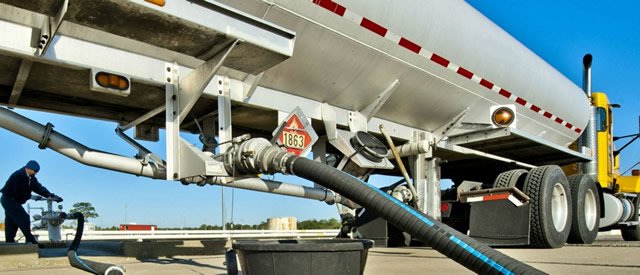
There appears to be no end yet to the current crisis in the aviation sector as findings show that the agreement between airlines and oil marketers can no longer hold due to continuous price hikes of the Aviation Turbine Kerosene, also known as JET-A1 or aviation fuel.
Last week, the Nigerian National Petroleum Corporation and domestic airlines, during a meeting with members of the House of Representatives, reached an agreement that the corporation would supply Jet-A1 to marketers nominated by airline operators for a period of three months at N480 per litre, pending when the carriers would be granted licences to import the commodity.
However, The PUNCH gathered that the agreement could no longer hold as the NNPC no longer has products.
Nominated oil marketers who sold at N480 per litre have also run out of products, and local airlines are back to buying at higher prices.
Findings showed that a former Chairman of the Major Oil Marketers Association of Nigeria and Chairman of 11 Plc, Tunji Oyebanji, was one of those who offered to sell the product at N480/litre, following the meeting at the House.
Unconfirmed sources said the state oil company, NNPC, merely brought in two cargoes to cushion the effect of the scarcity, and that the corporation is yet to bring in more products in the past few weeks.
During an interview with the current Chairman of MOMAN, Clement Isong, he told The PUNCH on Tuesday that the agreement to sell at N480/litre for three months was not with all marketers.
“The House of Reps didn’t have any agreement with marketers. The only person that had an agreement with them was Tunji Oyebanji, who at that time had six million litres. He was asked to sell at N480 per litre, and the product has almost finished. Six million litres cannot last for three months. So, because the agreement was with just him, other marketers sell at different prices depending on how much the product was brought in,” he said.
According to him, while the two cargoes brought in by the NNPC was sold to marketers at N432.6/litre and N462/litre respectively, marketers sold to operators at N540/litre, adding that the NNPC was able to sell at lesser price because it could access the foreign exchange.
“No forex everywhere and NNPC cannot subsidise the products,” he added.
When contacted by The PUNCH, Oyebanji said he had no knowledge of any agreement with the House of Reps.
“I didn’t have any agreement with anybody. What happened was that there was a call to us (marketers) to help out with the situation, and my company, 11 Plc, offered to help,” he said.
According to him, the House of Reps was to be blamed when they announced that they were on top of the situation and that marketers would sell at N480 for three months.
“Nobody gave me any directive. I was the one who offered to help. That’s why we are not politicians. We are businessmen, so, I wouldn’t know how the Reps convened my offer to the media to mean that they directed me, or that they had an agreement with marketers to sell at N480 for three months.”
He reiterated that the NNPC did not currently have any product to sell and that the quantity left in his tank was for his contract customers.
“So, I offered to help at a loss to my company. Because of the low price I sold, there was a rush by airline operators. Now, I have almost exhausted my products. The little I have is for my loyal customers,” he said.
The PUNCH learnt that price has since hit about N612 per litre.
Further findings show that with the naira-dollar exchange rate now at 600, aviation fuel may go for as high as N633/litre.
“The product I have left is for my contract customers because they can sue me if I don’t meet up with our agreement. We have been telling the local airlines to also sign contracts with us so that we can also plan for them like we do for foreign airlines,” he said.
Isong advised Nigerians to adjust to current market trends as the crises was not peculiar to Nigerians.
“Nigerians should understand that there is a situation in the world, and we must adjust and sort out ourselves. Government cannot do everything for us. Currently, government does not have money to sort out the education sector, health, agriculture and the other sector. ASSU is currently on strike, and the government can’t do anything about it,” he said.
Copyright PUNCH.
All rights reserved. This material, and other digital content on this website, may not be reproduced, published, broadcast, rewritten or redistributed in whole or in part without prior express written permission from PUNCH.
Contact: [email protected]





